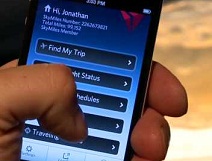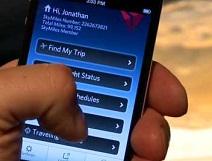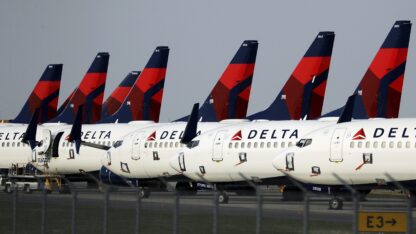Delta Mobile App Violates Privacy Law, California Alleges

California is suing Delta Air Lines, claiming the Atlanta-based carrier violates the state’s online privacy law.
The suit alleges Delta’s mobile application, or “app,” fails to inform consumers what information the airline collects. The California Online Privacy Protection Act, passed in 2004, requires such disclosure. 
(The airline’s main website does include a privacy policy.)
“We believe, and it is part of our perspective, that the consumer should know what privacy information is collected, how it is used, and with whom it is shared,” California Attorney General Kamala Harris said earlier this year.
Documents filed in San Francisco Thursday claim the “Fly Delta” app accesses up to 14-different types of personally identifiable information–everything from credit card numbers to photographs.
Wade Chumney is a professor of business law and ethics at Georgia Tech. He says California’s law doesn’t stop Delta from collecting data, it just mandates the airline tell customers.
“To me, that seems like a pretty low-level requirement–simply to provide notice,” says Chumney.
Yu Jeffrey Hu, also a professor at Georgia Tech, says a clear privacy policy fosters consumer trust.
As recently as October, Delta indicated it would comply, according to the Los Angeles Times.
A Delta spokesman declined an interview request, saying the airline does not comment on pending litigation.
But WABE legal analyst Page Pate says if Delta fights the lawsuit, it will likely argue California is overstepping its legal boundaries.
“Delta would have to say that: ‘What we’re doing—whether it’s our mobile app, our computer system, our website—it all has to do with running an airline. And running an airline is something we do under federal law, and it can’t be controlled by any state — California or any other one,’” says Pate.
This is the first time California has used its online privacy law to go after a company.
The Attorney General is asking a California court to stop Delta from distributing its app until it complies, as well as penalize the airline up to $2,500 for each violation.
9(MDAxODM0MDY4MDEyMTY4NDA3MzI3YjkzMw004))








